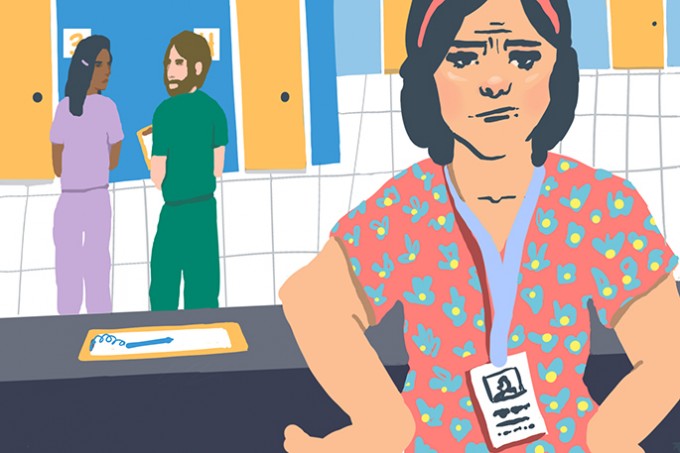Healthy Workforce
A Clear Case of Hazing
While bullying is about exclusion, hazing is a form of group initiation

Tina and Jack are both new graduate nurses in their first nursing job on the med-surg unit. Tina’s preceptor, Della, is consistently hard on Tina, often ordering her to perform tasks that make her uncomfortable and castigating her for any mistake. If Tina expresses discomfort with this harsh treatment, Della gives her disapproving looks and wonders aloud if Tina “has what it takes” to be a nurse.
Curiously, Della seems to be very kind to most of the other nurses — except the new grads. Jack reports receiving similarly rough treatment. When he sees Della in the hall, she often makes remarks like, “You okay? You remind me of other nurses who didn’t make it.” It makes Jack grateful that his own preceptor is a patient, supportive teacher.
Needless to say, Tina finds this situation very stressful, leaving her wondering if she made the right choice in becoming a nurse. Is Tina being hazed?
We’ve all heard the truism, “Nurses eat their young.” For every nurse who wants to support and nurture new grads, it sometimes seems that there are two others who are eager to tear the newcomers down. Too many experienced RNs still believe that subjecting new nurses to jeering or abuse is normal or even beneficial.We’ve all heard the truism, “Nurses eat their young.”
For every nurse who wants to support and nurture new grads, it sometimes seems that there are two others who are eager to tear the newcomers down. Too many experienced RNs still believe that subjecting new nurses to jeering or abuse is normal or even beneficial. Such treatment is called hazing. We most commonly think of hazing in connection with college fraternities or military boot camps, but it’s a very common occurrence in the professional world, including in nursing units across the country. One recent study suggests that at least one in four workplaces practices some form of new employee hazing.












